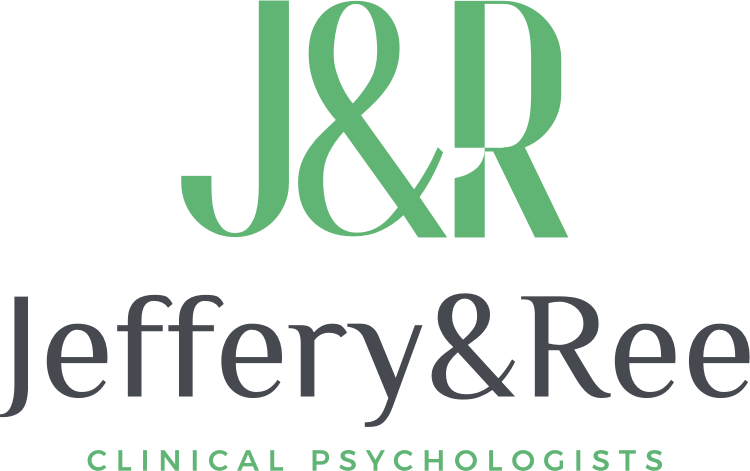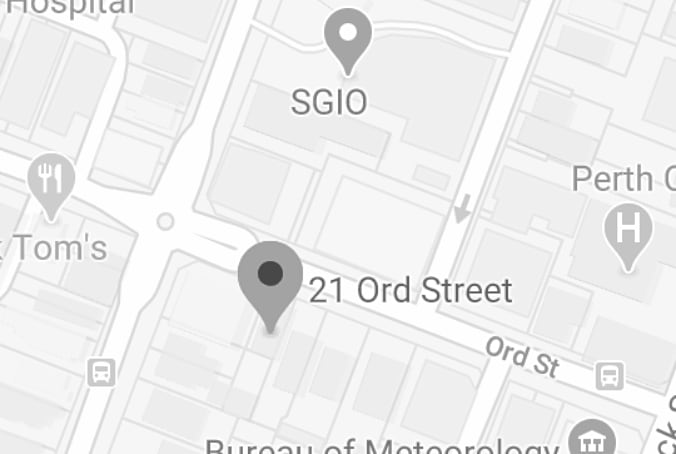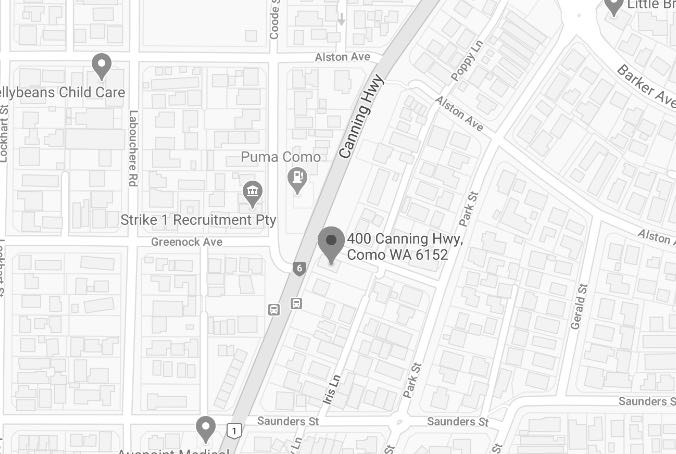Adult Psychology
Our clinical psychologists for adults, work with adults of all ages, from 18 to 80+. You can count on our professional team to help you with a wide range of psychological and mental health concerns. Our aim is to assist you to manage your thoughts, your mood, your relationships, and your quality of life.
We offer consultations in West Perth, Como, Murdoch, and via telehealth (online therapy).

Supporting Adults
All of the J&R Clinical Psychologists work with adult clients from 18-80+. We are compassionate, highly trained, and professional in our approach. If you’re not sure which practitioner is the best suited to you, please check out our team page or phone our friendly reception team.
Below we outline some of the more common concerns we work with. It is perfectly normal not to fit neatly into one category and you may be experiencing aspects of a number of the areas below.
You may not have a diagnosis, but you may be aware that you need support with your mental health. You may be experiencing symptoms that are getting in the way of your wellbeing, work, relationships, or other areas of life. You may be feeling flat, unmotivated, stressed, or lacking in direction. Either way, your J&R clinical psychologist will work with you to understand what you are experiencing and to generate a plan for moving forward.
- Anxiety: Panic attacks, excessive worry (and Generalised Anxiety Disorder), social anxiety, fears and phobias, OCD & post-traumatic stress
- Depression/low mood
- Stress, including work or study stress and relationship stress
- Coping with change and adjustment
- Establishing improved life balance
- Grief and Loss
- Relationship difficulties
- Low self-esteem and confidence
- Coping with chronic health conditions
- Coping with psychotic symptoms
- Performance psychology: exams, work performance, elite sports performance
- Disordered eating
- Adjustment disorder
- Sexual performance concerns
- Sleep difficulties: please see our sister site, Sleep Matters. www.sleepmattersperth.com.au
Anxiety and Anxiety Disorders
Everyone feels anxious at times; it is a healthy, normal and natural human response. Anxiety is characterised by feelings of worry, and/or fear. If the anxiety is strong or persistent enough to interfere with your daily activities over a period of time (e.g. months), it may be classified as an anxiety disorder.
Anxiety difficulties are very common with about one in four adults experiencing significant anxiety at some point in their lifetime. Examples of common anxiety disorders include:
- Panic Disorder: This is characterised by frequent, severe and disabling panic attacks which may lead to avoidance of situations where panic is more likely to occur. Panic Disorder can get in the way of life, as daily activities become structured around avoiding panic attacks.
- Obsessive-Compulsive Disorder (OCD): When someone experiences OCD, where the person has intrusive (often scary) thoughts and repetitive behaviours. For example thoughts of spreading germs and the behaviours of very frequent hand washing.
- Social Anxiety Disorder. This is characterised by fear of criticism and negative evaluation by others and often leads to avoidance of social situations such as public speaking, parties, shopping, writing, or eating in public.
- Fears and phobias. These are fears about specific situations or objects. Some common phobias include fears of heights, fear of flying, fear of closed spaces, or fear of animals, for example, dogs, snakes or spiders.
- Generalised Anxiety Disorder (chronic worry). Worry is part and parcel of being human, but when worry occurs most of the time, is intense and gets in the way of living life, it may be classified as Generalised Anxiety Disorder.
- Post-traumatic stress disorder (PTSD). PTSD can develop after experiencing or witnessing a traumatic event. Symptoms include emotional distress, unwanted thoughts (e.g., flashbacks), nightmares, hypervigalence, irritability/anger, avoidance, and difficulty concentrating and/or sleeping. See our blog on PTSD therapies.
Depression, dysthymia, and low mood
Everyone experiences low mood at times, where we might feel down or blue, flat, irritable, and low in energy and motivation. Often these feelings pass and we return to our usual mood with no formal treatment.
Depression and dysthymia are different in that they are more persistent and more severe than regular low mood. These conditions get in the way of living a full life and can be experienced as low self-esteem, hopelessness, altered sleep, reduced energy, low motivation, and altered appetite. Depression and dysthymia are common; the World Health Organisation (WHO) reports that depression is the leading cause of disability worldwide. Dysthymia is a form of depression that may have fewer symptoms, but is persistent for a period of two years or more.
Psychological therapies can be effective in the treatment for depression, either alone, or alongside medication. Psychological treatment can help you to:
- Create more awareness and understanding of your low mood,
- Create helpful thinking patterns
- Improve your communication style
- Re-engage in valued activities
- Develop a range of coping skills which are an effective treatment for depression.
- Cognitive Behaviour Therapy (CBT), Acceptance and Commitment Therapy (ACT), Interpersonal Therapy (IPT), and Mindfulness-Based Cognitive Therapy each have demonstrated effectiveness in clinical trials.
We will help you to consider which therapy (or combination of therapies) may be best suited to you. At J&R Clinical Psychologists we can assist with these therapies. See Beyond Blue for further information about what works for depression.
Low self-esteem
Low self-esteem describes people who hold a chronically negative view of themselves, are chronically critical, and frequently experience feelings of inferiority or worthlessness. Low self-esteem can lead to anxiety and low mood, which can feedback to worsen the low self-esteem.
Signs of low self-esteem include being frequently self-critical (and often critical of others), low confidence, lack of willingness to try new things, lack of a sense of self (not knowing who you are), and perfectionism (being intolerant of mistakes in yourself or others). When low self-esteem becomes chronic, it can get in the way of living a fulfilling life and can lead to anxiety and low mood. Low self-esteem can make it hard to reach your potential in work, relationships, and hobbies.
Thankfully, there are evidence-based treatments for working with low self-esteem. Cognitive Behaviour Therapy (CBT), Acceptance and Commitment Therapy (ACT) and Schema Therapy may each be effective. Increasing self-acceptance and self-compassion are important goals of therapy, along with work towards living a life that is engaged, fun, and meaningful. It is often also useful to understand the origins of the low self-esteem as this can be an important pathway towards acceptance.
Stress
Stress is a term that has become very common in our modern lives. Nearly everyone reports feeling stressed from time to time. Stress is experienced when our coping skills or resources are not enough to meet the demands placed on us. Stress management involves working towards a balance between our resources and the demands placed upon us. At J&R Clinical Psychologists, we will work with you to identify sources of your stress which may be both external (e.g. a demanding job or family situation) and internal (e.g. uncompromising standards and expectations, difficulty accepting mistakes). Once the sources of stress are clearly identified you will be in a better position to make choices about how to move forward in a positive way.
Therapy will likely involve supporting you to :
- Become clear about your life priorities and values
- Optimise your coping skills (e.g., time management, problem solving, relaxation skills, communication, and assertiveness skills)
- Ensure your internal demands are realistic (e.g., addressing any perfectionism)
- Make decisions about external factors that may require change (e.g. changing your current work role)
Coping with adjustment to change (and adjustment disorder)
When we experience a significant change or stress in life, for example the death of a loved one, a change in work situation, a move, relationship breakdown, birth of a child, or illness, there is a period of adjustment required for us to manage, accept, and settle into our new situation. When this adjustment causes significant and ongoing distress, adjustment disorder may be diagnosed. Adjustment disorder can be treated with medication, therapy, or both.
Symptoms of adjustment disorder include anxiety, sadness and/or tearfulness, hopelessness, impulsive behaviour, withdrawing from friends family, and/or activities, and/or insomnia.
Of course not everyone facing change will have a diagnosis of adjustment disorder. People often seek out our support if they are experiencing uncertainty in the face of life transitions or decisions relating to career or relationships for example.
Grief and Loss
Grief occurs in response to the loss of someone or something loved and/or important. It is of course a normal reaction which signals we’ve lost something treasured. Even though people travel through grief in extremely diverse ways, usually an overall pattern does occur. Understanding this may help to normalise the experience and make it feel less overwhelming. Grief often begins with shock, numbness, and possibly denial. This is often followed by a time when the emotional pain sets in which can be experienced as overwhelming and the person may have mood fluctuations, little energy, and may withdraw. When acceptance is experienced, the feelings of depression and rage are less intense, the losses are accepted (this is not neccesarily a happy feeling), and energy and hope begin to return. People may cycle through the stages of grief, and experience them in various orders.
Some people find it helpful to seek psychological support during the grieving process. It can be helpful to speak openly with an objective professional, to work to understand the emotional response, and learn effective ways to cope.
If the intensity of the grief is debilitating and has not decreased within several months of the loss, your GP or psychiatrist may diagnose complicated grief, adjustment disorder, or depression. Medication and/or therapy may be prescribed treatments. The team at J&R Clinical Psychologists offer a warm, supportive, and non-judgemental approach to those presenting with adjustment difficulties and grief.
Support for coping with chronic health conditions
The number of people living with chronic health conditions is increasing. Some estimates suggest that 45% of adults have some form of chronic health condition.Common conditions include diabetes, autoimmune diseases, obstructive sleep apnea (OSA), gastrointestinal disorders, chronic pain and chronic fatigue, migraine, and endometriosis, among others. Commonly people have to deal with pain, fatigue, dietary, and physical restrictions which may have a limiting impact on work, relationships, and life in general. Grief and loss may be experienced, as well as changing identity, and sense of isolation. There is often anxiety and uncertainty to cope with.
There is a growing body of evidence to suggest that Cognitive Behaviour Therapy (CBT) and Acceptance and Commitment Therapy (ACT) are effective treatments for aiding in illness management. The way we think about medical conditions and pain can have a large impact on how the condition is experienced and on how well the person manages the treatment/management demands of the illness. CBT and ACT can be powerful in helping people to manage their illness and live a meaningful and engaged life.
Disordered Eating
Concerns related to disordered eating can include dieting and overeating, emotional eating, weight management, binge eating, poor body image, and low self-esteem.
All of the J&R Clinical Psychologists can assist you with disordered eating-related concerns, and Michelle LaPuma and Dr Olivia Carter have specific training and experience working with clients who have a difficult relationship with eating and food.
We don’t treat more severe eating disorders such as anorexia at J&R Clinical Psychologists as these require support from a more intensive, specialised service.
Anger
Like all emotions, anger is perfectly natural and can be helpful at times. However, if your anger feels excessive or is having a negative impact on your relationships, then it may be time to seek support.
Signs that anger has become an issue for you:
- Feeling angry, irritated, tense, or frustrated most of the time
- Losing your temper over small things
- Other people commenting that you are irritable or angry
- People describe feeling scared of you or have difficulty approaching you
- You feel out of control when you are angry
- Your temper is having a negative impact on home or work relationships
- You become physically destructive when angry
Adult insomnia and sleep disturbance
Even though seeking psychological help is now quite common, it can be a daunting process to find the best match.




